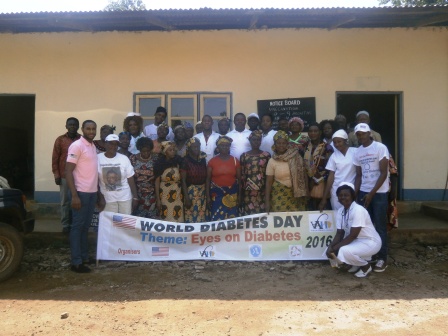Improved Livelihoods for All: Fallacy, Reality or Possibility?
Does it ever seem like you have more adversity in your life than others? As if everyone around you is having an easier time of things than you are?? Do you ever ponder about the possibility of having a world characterized by improved livelihoods and health for all? We all seem to be getting increasingly concerned about our health which affects our livelihoods and extends beyond our workplace, our relationship with our families and our interaction with society.
I ascertained this point some years back as I sadly experienced an excruciatingly painful period in my life and career. Sometimes all it takes for one to change his views of the world and society is “experience”, like the common adage puts it “experience is the best teacher“. Sharing our experiences and ideas is a modest attempt to make sense of the challenges that plague the future of sustainable development in our communities, Africa and the world at large. I am an Educator in training at least, but my love for community development initiatives has immersed me into the world of development work.
In Cameroon, the effects of high blood pressure and kidney failure are forcing people to live below the poverty line. I recall in 2012 when I was volunteering as Program Assistant for Interfaith Vision Foundation Cameroon, my father was diagnosed with prostate cancer. Although not from a very wealthy family, I’d say we were relatively a financially stable family. Being a top official in the local government administration of my community, my father was severely struck down by this dangerous predicament. Managing his illness was cumbersome,– the testing, treatment, missing work – we saw our financial resources depleting within the blink of an eye. My younger brother had difficulties going to school that year and my mother’s modest income wasn’t just enough. I still remember how my mother contacted all our relatives for help and it was really a burdening situation. The funds my dad had set aside for my schooling as well was no longer a possibility as I was intending to engage a postgraduate programme at University that year. My volunteering activities were seriously affected as I had to forgo certain tasks at least twice a week to careter for my dad, who unfortunately passed away two years later.
Joining Value Health Africa, set a new paradigm for me as I began observing a different perspective about the lives we live. I realized that globalization tended to influence people’s lifestyles in our communities, and this accounted for the increased prevalence of such diseases. I could actually relate my experience to the numerous cases the organization encountered and as such, could rightly ascertain that achieving improved livelihoods for our families and communities might seem to be a difficult reality but is actually a possibility. VAHA is an epitome of making difficult or impossible situations possible. The organization's ground breaking interventions and community engagement processes, is evident of the drive to promoting improved livelihoods for families and or households in rural communities. We have all learnt the benefits of volunteering and giving back something to the community.
Therefore, we can only rightly say that If we can first and foremost come to terms with the fact that there is a problem worth solving, that is a big step to achieving the change and lives we desire. Achieving the Sustainable Development Goals is very imperative for Africa’s growth and we all are obliged to fully engage in the train. Achieving improved livelihoods for all may seem to be a fairy tale but it is a reality. Such can only be consolidated if partnerships are formed, if communities come together and realize the need for improvement. No matter what we do, our own little efforts do matter.
Franklin Titang
VAHA Member
